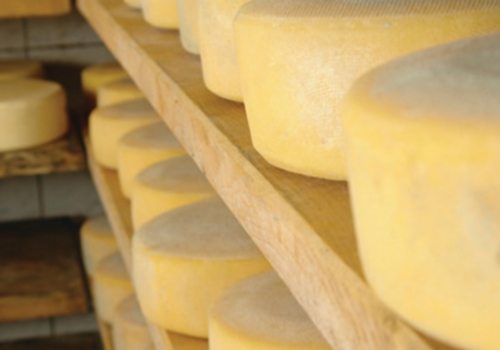Arla Foods Ingredients has launched Nutrilac FastRipe, a natural milk protein that enables cheese-makers to reduce ripening times and save thousands of euros every year without any negative impact on product quality or shelf life.
Ripening is a key stage in the production of continental and Cheddar-type cheeses.
It typically takes from three weeks to more than a year, which means it can represent a significant overhead in terms of storage.
The ingredient enables companies to cut their storage costs by speeding up the maturation process by anything from one to six weeks, depending on cheese variety.
It is made with Arla Foods Ingredients’ CH-4560 natural whey protein, which is extracted from cows’ milk.
It is supplied as a fully soluble powder that can be dispersed and blended quickly and easily in cheese-milk or water, without having to change the overall manufacturing process in any way.
Once added, Nutrilac FastRipe accelerates the mechanism in cheese that causes it to ripen.
It softens the protein matrix in the cheese at an earlier stage to help the cheese reach its ideal texture more quickly, and then breaks down casein molecules at a faster rate than usual to release the volatile compounds that are responsible for developing flavor.
Unlike other ripening agents – such as cultures and enzymes – the ingredient does not break down proteins excessively, which means shelf life is not shortened and taste is not impaired.
In most countries, it does not need to be declared on the label because it is derived purely from milk.
Nutrilac FastRipe is suitable for use in a wide range of natural cheeses, including Gouda, Edam, Manchego, Cheddar and Port Salut.
The company estimates that a dairy company producing 30,000 tons of Gouda a year, and adding the ingredient to its recipe, could reduce storage time by three weeks and save €12.10 (US$16.75) per ton of cheese produced – or €363,000 (US$502,341) annually.










